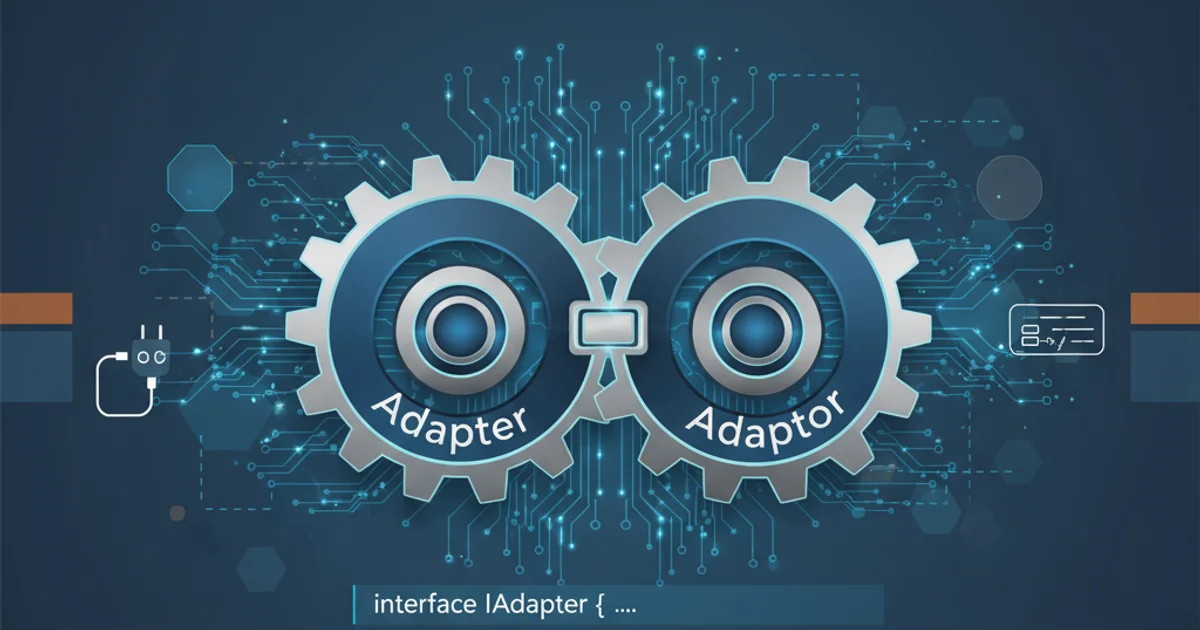"Adapter" or "adaptor"?
Categories:
Adapter vs. Adaptor: Unraveling the Spelling Mystery in Tech

Explore the subtle differences and common usage of 'adapter' and 'adaptor' in technical contexts, and learn which spelling is generally preferred.
In the world of technology and engineering, precise terminology is crucial. However, some words present a curious case of dual spellings, leading to occasional confusion. 'Adapter' and 'adaptor' are prime examples. While both terms refer to a device that connects two incompatible parts or modifies something to fit a new purpose, their usage can vary by region, industry, and even personal preference. This article delves into the origins, common applications, and prevailing conventions to help you navigate this linguistic nuance.
Etymology and Regional Preferences
The root of the word comes from the Latin 'adaptare', meaning 'to fit'. Both 'adapter' and 'adaptor' are derived from this, with the difference lying in the suffix. The '-er' suffix typically denotes an agent noun (one who performs an action, or a device that does something), while '-or' also forms agent nouns, often with Latin origins. Historically, British English has shown a slight preference for '-or' in some technical terms (e.g., 'resistor', 'capacitor'), while American English tends towards '-er'.
However, this distinction isn't always clear-cut, and many terms have become standardized over time. For 'adapter'/'adaptor', the regional divide is less pronounced than for some other words, but a general trend can still be observed.
flowchart TD
A[Latin 'adaptare'] --> B{"Agent Noun Suffix"}
B --> C["-er" (e.g., 'Adapter')]
B --> D["-or" (e.g., 'Adaptor')]
C --> E{"American English Preference"}
D --> F{"British English Tendency"}
E --> G["Wider Tech Usage: Adapter"]
F --> H["Niche Tech Usage: Adaptor"]
G & H --> I["Both are understood"]
I --> J["Context & Industry Standard Dictates Best Choice"]Flowchart illustrating the etymological path and regional preferences for 'adapter' and 'adaptor'.
Common Usage in Technology and Engineering
In modern technical documentation, especially within computing, electronics, and software engineering, 'adapter' is overwhelmingly the more common and preferred spelling. This includes terms like:
- Network adapter: A device that connects a computer to a network.
- Power adapter: A device that converts electrical power from a wall outlet to a suitable voltage for an electronic device.
- USB adapter: A device that allows a USB connection to interface with another port type.
- Design Pattern (Software): The Adapter pattern, which allows incompatible interfaces to work together.
While 'adaptor' might occasionally appear, particularly in older texts or specific niche industries (sometimes in electrical engineering contexts in the UK), 'adapter' has become the de facto standard for clarity and consistency across most global technical communication. Using 'adapter' minimizes potential ambiguity and aligns with the most widely accepted spelling.
interface OldInterface {
void oldRequest();
}
class OldSystem implements OldInterface {
@Override
public void oldRequest() {
System.out.println("Old system's request handled.");
}
}
interface NewInterface {
void newRequest();
}
// The Adapter class
class Adapter implements NewInterface {
private OldInterface oldSystem;
public Adapter(OldInterface oldSystem) {
this.oldSystem = oldSystem;
}
@Override
public void newRequest() {
System.out.println("Adapter converting new request to old...");
oldSystem.oldRequest(); // Delegate to the old system
}
}
public class AdapterPatternDemo {
public static void main(String[] args) {
OldInterface old = new OldSystem();
NewInterface adapter = new Adapter(old);
adapter.newRequest();
}
}
Example of the 'Adapter' design pattern in Java, demonstrating how an adapter facilitates communication between incompatible interfaces.
When to Use Which (and Why Consistency Matters)
Ultimately, both spellings are grammatically correct and refer to the same concept. The choice often boils down to convention and consistency. If you are writing for a specific audience or within an organization that has a style guide, adhere to their preferred spelling. For example, if you're documenting a product primarily sold in the UK and their internal documentation uses 'adaptor', it might be appropriate to follow suit.
However, for broader technical communication, academic papers, or software documentation, 'adapter' is the safer and more common choice. The key is to be consistent within your own writing. Do not switch between 'adapter' and 'adaptor' within the same document or project, as this can appear unprofessional and confuse readers.